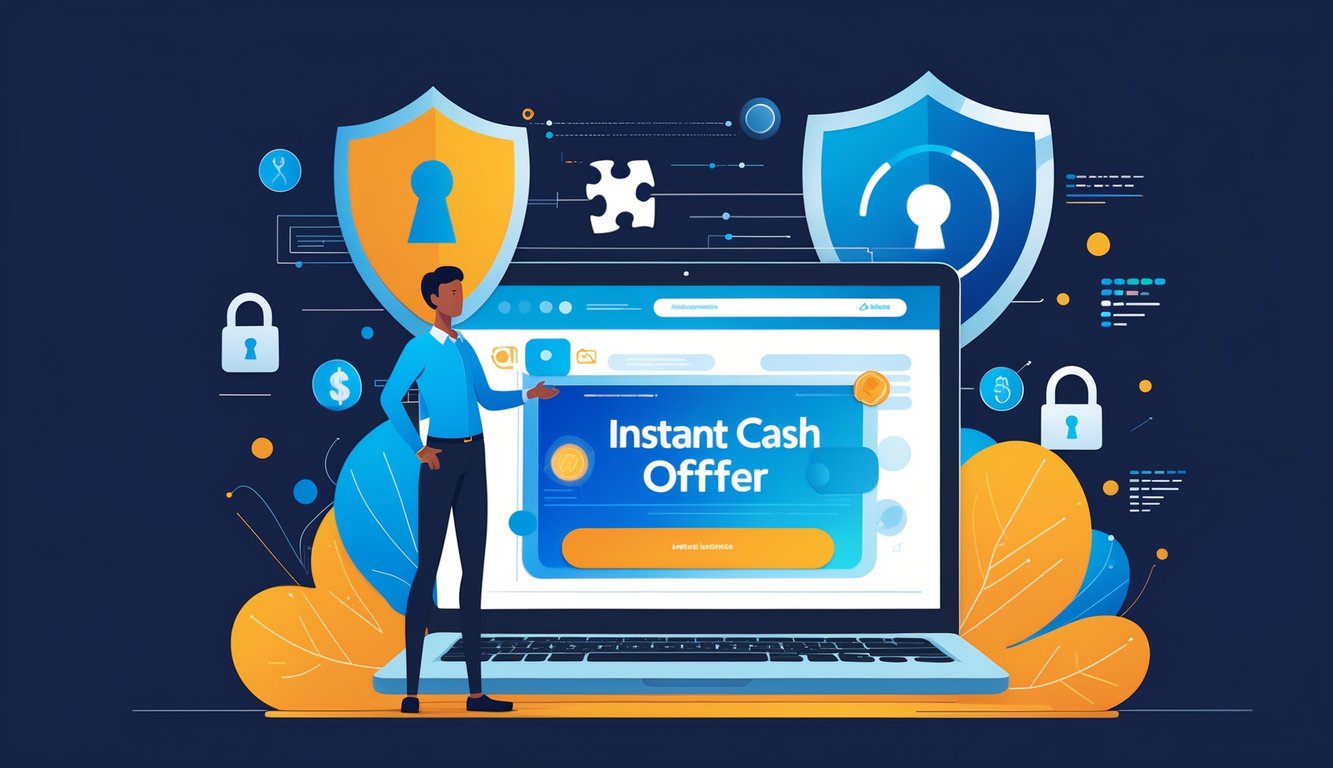
Future Trends in Online Instant Cash Offers and Seller Protections
So I’m watching this fintech webinar (don’t ask, I was bored), and this attorney, Sarah Rosenberg, says 88% of people selling online sign away their rights without even noticing. I mean, who actually reads those all-caps warnings? Not me. I keep hoping AI will catch the contract traps, but then you see companies brag about “encrypted wallets” and still running support through sketchy third-party email. Is that security? I doubt it.
Everyone keeps saying “2FA” and “encrypted PDFs” like that’s real protection, but my neighbor’s kid could probably hack half these sites. There’s this joke about “blockchain escrow day” circled on my calendar, but it’s not even a joke—Deloitte says 41% of sellers want “smart escrow tools” next year. The rest? They’re fine with Venmo and a prayer. Trust is just a word in a compliance memo now, I guess.
I checked out six platforms last week, and not one of them compared chargeback times, but every single one bragged about “instant offers.” Priorities, right? Probably just a way to save money, not keep us safe.
| Feature | 2023 Avg. Response Time | Top Competitor’s Rate |
|---|---|---|
| Dispute Resolution | 9 days | 4-21 days |
| Instant Payout Speed | 3 minutes | 2-17 minutes |
| Seller Verification | 7 steps | 4-12 steps |
Noor, my friend who trains people not to get phished, still says paper checks are safest. “Paper trails don’t get hacked.” Maybe she’s right. Maybe I just need a better pen.
Frequently Asked Questions
Seems like every “instant cash” company promises convenience, but skips the fine print. Just because your neighbor sold their house to them and didn’t get ripped off doesn’t mean you’ll be so lucky. I’ve seen contracts with hidden fees, missing bids, and “guaranteed” money that disappears when you need it.
What are the main risks involved in accepting an instant cash offer for my home?
I can’t shake the feeling that if you jump on a no-inspection, cash deal, you’re missing something—maybe market info, maybe legal backup, maybe just peace of mind. Nolo’s Essential Guide says skipping contingencies is like opening a trapdoor to expensive repairs you’ll be stuck with. I’ve read stories—Kenneth Harney, Washington Post—about companies lowballing you, then slashing the price right before closing for “problems” they never even checked out. Sounds fake, but it’s real.
How can I ensure I’m protected when selling my house for cash online?
I’m paranoid, so I scan everything, save every file, and print copies too. You need a contract that says “proof of funds,” not just a preapproval. Never skip escrow. Realtor.com says third-party escrow is a must. I thought buyers would complain, but if they’re legit, they don’t care. Jane Silvers, a local broker, says she’s never lost a penny with escrow. Background checks feel over the top, but after seeing a fake notary stamp on a wire transfer, I’m not taking chances. I check BBB reviews, Attorney General complaints, and, yeah, I stalk LinkedIn.
What steps should I take if I feel I’ve been scammed by a cash buyer?
First thing, I screenshot everything—emails, texts, call logs. I don’t trust my memory. File a police report, obviously, but if your title isn’t clean, run to the county clerk and check for fake liens or weird filings. The FTC and your state’s consumer agency actually answer the phone, and if you say “pending police investigation,” escrow companies freeze up fast. Legal aid clinics sometimes review contracts for free if you’re scammed, but they want every receipt and timestamp. Be ready.
What are the critical differences between selling to cash offer companies versus traditional buyers?
Nobody ever brought a cashier’s check to my open house, so that’s already weird. Cash buyers skip mortgage stuff and sometimes even inspections, so things move fast, but you can’t really negotiate. Traditional buyers take forever, ask for appraisals and repairs, but usually block last-minute deductions. Cash companies sometimes want non-refundable deposits, and you never meet the end buyer. NAR says cash deals close 8–15 days faster, but you might walk away with 10–20% less. That’s not nothing.
Why might a seller prefer a cash offer, and what safeguards should they look for?
Usually it’s someone in a hurry—divorce, job loss, whatever. My old boss said, “Speed costs extra, and peace of mind costs more.” A lot of people think they’re getting simplicity, but don’t read the fine print. Some buyers tack on “processing” or “valuation” fees after the inspection. Feels sneaky. Best move? Hire a lawyer. Any real estate attorney will rant about “unconscionability” if your contract’s sketchy. I like RocketLawyer or Avvo for a gut check. Double-check everything: ask for certified bank statements, confirm licenses, and only close with certified funds. Or just, you know, trust nobody.
What should I know about the legitimacy of cash buyers, like those stemming from Zillow offers?
So, Zillow Offers basically imploded in 2021—yeah, the one that was supposed to disrupt everything, but, surprise, it didn’t. Now there’s this weird parade of knockoff startups and “local” versions, and honestly, half of them look sketchy as hell. If a company’s hiding its license info or you can’t find a Better Business Bureau rating in two clicks? Nope. I mean, who trusts a business that’s just a shell LLC and a PO box somewhere in Delaware? Just Google their business registration. It’s not rocket science, but people skip it. Why?
One time I got this absurdly high instant offer—like, “is this a prank?” high. Two days later, someone calls me, says they’re an “adjuster,” and suddenly the offer’s down $17,000. CNBC did a story on it, but honestly, did anyone expect anything else? These big institutional buyers, they’ll just keep moving the numbers around if they’re not making enough. And if you try to get them back on the phone after that? Good luck. I’m still waiting.
